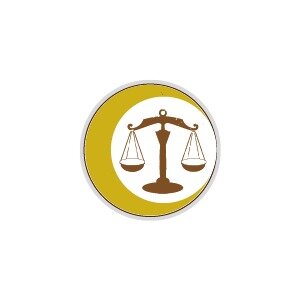Best Tax Lawyers in Kumasi
Share your needs with us, get contacted by law firms.
Free. Takes 2 min.
List of the best lawyers in Kumasi, Ghana
About Tax Law in Kumasi, Ghana
Tax law in Kumasi, Ghana, is a crucial aspect of the country's legal system. It governs the rules and regulations regarding the imposition and collection of taxes from individuals and businesses. Understanding tax laws is essential to avoid penalties and ensure compliance with the law.
Why You May Need a Lawyer
There are several situations where you may need a lawyer for tax-related issues in Kumasi, Ghana. Some common scenarios include disputes with tax authorities, filing complex tax returns, starting a new business, or facing allegations of tax fraud. A lawyer can provide guidance and representation to protect your rights and interests.
Local Laws Overview
In Kumasi, Ghana, tax laws are primarily governed by the Ghana Revenue Authority (GRA) and the Internal Revenue Act. Key aspects include income tax, corporate tax, value-added tax (VAT), customs and excise duties, and property tax. Understanding these laws is crucial to fulfilling your tax obligations and avoiding legal issues.
Frequently Asked Questions
1. What is the tax rate for individuals in Kumasi, Ghana?
The tax rate for individuals in Kumasi, Ghana, varies based on income levels. The tax rates range from 0% to 30%.
2. How can I dispute a tax assessment from the GRA?
If you disagree with a tax assessment from the GRA, you can file an objection within a specified period. It is advisable to seek legal advice to navigate this process effectively.
3. Are there any tax incentives for businesses in Kumasi, Ghana?
Yes, there are various tax incentives and exemptions available for businesses in Kumasi, Ghana, to promote investment and economic growth.
4. Is it mandatory to file tax returns in Kumasi, Ghana?
Yes, it is mandatory for individuals and businesses to file tax returns annually in Kumasi, Ghana, even if they have no taxable income.
5. What are the consequences of tax evasion in Kumasi, Ghana?
Tax evasion is a serious offense in Kumasi, Ghana, and can result in penalties, fines, and even imprisonment. It is crucial to comply with tax laws to avoid legal consequences.
6. Can I negotiate a payment plan with the GRA for tax arrears?
Yes, you can negotiate a payment plan with the GRA for tax arrears to settle your outstanding tax liabilities over a period of time.
7. How can I reduce my tax liability legally in Kumasi, Ghana?
You can reduce your tax liability legally in Kumasi, Ghana, by taking advantage of tax deductions, reliefs, and incentives provided by the tax laws.
8. What are the different types of taxes imposed in Kumasi, Ghana?
Some of the main types of taxes imposed in Kumasi, Ghana, include income tax, corporate tax, value-added tax (VAT), customs and excise duties, and property tax.
9. Can I represent myself in tax court in Kumasi, Ghana?
While you can represent yourself in tax court in Kumasi, Ghana, it is advisable to seek legal representation to ensure your rights are protected and to navigate the legal process effectively.
10. How can I report tax fraud or evasion in Kumasi, Ghana?
If you suspect tax fraud or evasion in Kumasi, Ghana, you can report it to the GRA or other relevant authorities for investigation. It is essential to provide evidence to support your claims.
Additional Resources
For more information and assistance with tax-related issues in Kumasi, Ghana, you can contact the Ghana Revenue Authority (GRA) or seek guidance from a reputable tax lawyer or accounting firm.
Next Steps
If you require legal assistance with tax matters in Kumasi, Ghana, it is advisable to consult with a qualified tax lawyer who can provide expert advice and representation. Be sure to gather all relevant documents and information before meeting with a lawyer to ensure a productive discussion.
Lawzana helps you find the best lawyers and law firms in Kumasi through a curated and pre-screened list of qualified legal professionals. Our platform offers rankings and detailed profiles of attorneys and law firms, allowing you to compare based on practice areas, including Tax, experience, and client feedback.
Each profile includes a description of the firm's areas of practice, client reviews, team members and partners, year of establishment, spoken languages, office locations, contact information, social media presence, and any published articles or resources. Most firms on our platform speak English and are experienced in both local and international legal matters.
Get a quote from top-rated law firms in Kumasi, Ghana — quickly, securely, and without unnecessary hassle.
Disclaimer:
The information provided on this page is for general informational purposes only and does not constitute legal advice. While we strive to ensure the accuracy and relevance of the content, legal information may change over time, and interpretations of the law can vary. You should always consult with a qualified legal professional for advice specific to your situation.
We disclaim all liability for actions taken or not taken based on the content of this page. If you believe any information is incorrect or outdated, please contact us, and we will review and update it where appropriate.










